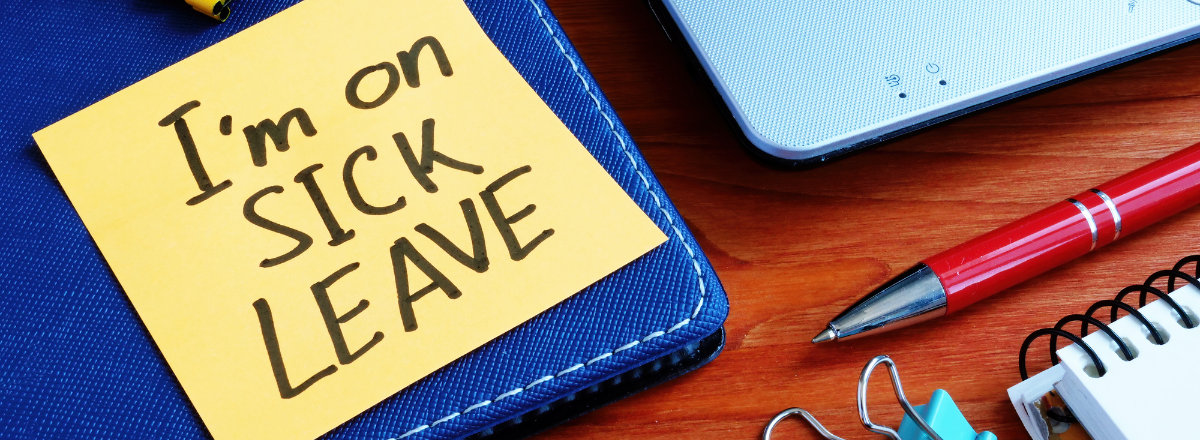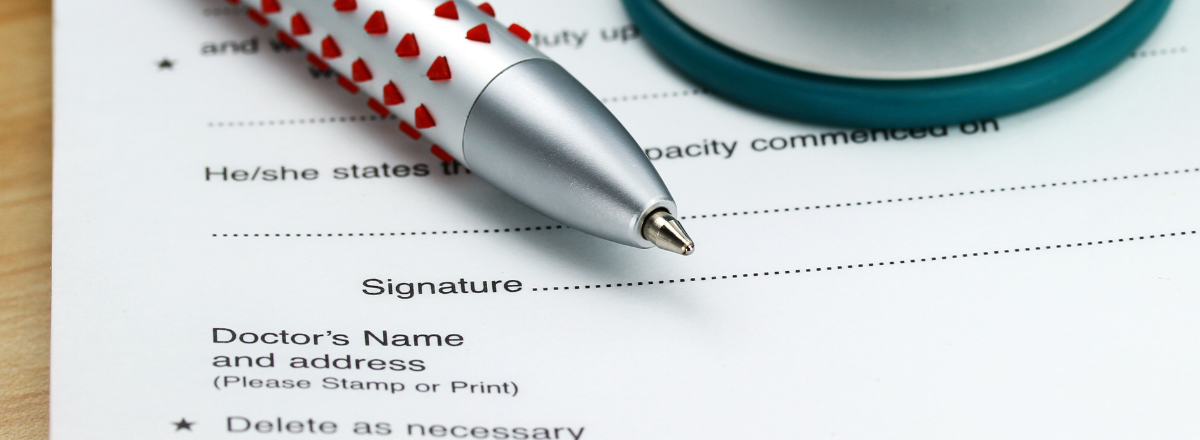Earlier this year we reported on record levels of employees off sick. Latest research from the Chartered Institute for Personnel and Development (CIPD) shows that numbers aren’t coming down, in fact, the number of sick days being taken has hit a 10-year high – and that’s even before we hit another possible twindemic of COVID and flu.
CIPD figures show that the average amount of sick leave taken has gone up by more than a third, from 5.8 days pre-pandemic to 7.8 days over the past year. ZoomDoc’s Chief Medical Officer and GP, Dr Kenny Livingstone, isn’t surprised by the data.
‘We offer a private sickness letters service amongst other medical services (more on this below) and we have had thousands of genuine requests for sick notes – even over the summer, when sickness levels may ordinarily be expected to reduce or at least slow down,’ he says.
It’s a topic that continues to make health and economic headlines so here’s the latest look at causes of current sick leave rates – as well as where to get sick leave support when you really need it.
What’s causing so much sick leave?

Number of workers taking sick leave hits 10-year high – staff were absent from work for an average of 7.8 days over the past year, up from 5.8 days in 2019
Reasons behind sick leave often fall into two camps; short-term and long-term.
Short-term absences are mostly being caused by:
- COVID or flu – although there’s no need to take time off if you have COVID, it can make you feel very unwell and require time off. More than a third of organisations reported this as a significant cause of sick days.
- Gastro bugs – if you’re floored by norovirus, sickness bugs or food poisoning, NHS advice is to stay away from the office for 48 hours after your last episode.
- Minor illnesses – these can include headaches, throat infections and viruses.
Long-term absences requiring weeks and even months off work are, according to latest research, down to:
- mental health issues (anxiety, stress, depression)
- long COVID
- musculoskeletal injuries
- serious illness, such as cancer or stroke.
Where to get sick leave support
With so many varied and valid reasons for needing time off work, there’s no easy approach to getting everyone back on their feet or on their mend and back to work quickly – as nice as that would be for business, employers, employees and ultimately, the economy.
‘What is important is to recognise that people genuinely off sick don’t want to be off work or unwell. Ongoing illness, injury and mental health conditions can make it a lonely and isolating experience, so getting some support and doing anything you can to get better and stay well is key,’ says Dr Kenny.
So if you or someone you know is off work and needs some assistance, these may help get you back to work, or at least take some of the stress away so you can focus on getting fit …
Sick notes sorted

A fit note is issued by certain healthcare professionals. It provides evidence of the advice patients have been given about their fitness to work.
An important part of your recuperation or rehabilitation is avoiding any unnecessary stress. However, there is admin to deal with along the way. That’s where ZoomDoc can help.
As mentioned earlier, we offer a stress-free way to get your sickness letter for your employer or for insurance purposes and it doesn’t even need you to leave the house, or get out of bed for that matter.
Simply order our ‘Work Sickness certificate’ and for £40 we can provide you with a same-day letter confirming sickness or your health condition and its impact on your work. Evidence will be required and your case will be reviewed by doctors. It will only provide you with a 7-day certificate.
Second opinion made simple

If you would like a second opinion after receiving advice from your GP, you can ask them to refer you to another GP.
If not knowing what’s wrong with you is what’s keeping you off work, don’t suffer in silence.
‘If you’re not getting better or feel like you’re not being heard, trust your gut and get a second opinion either through your GP or current healthcare team, or via a private service,’ says Dr Kenny.
ZoomDoc offers paid-for GP appointments where you can get a second opinion by speaking to one of our doctors at a time to suit you, from the comfort of your own home.
‘Alternatively, we can also help provide you with a same-day GP referral letter enabling you to see a specialist if you have private healthcare,’ says Dr Kenny.
Helplines that can help
Help and support is out there. Here are just some of the many recommended by the NHS:
- The NHS’s COVID Recovery programme offers help and support with long COVID here.
- NHS mental health services – if you’re struggling to get help with mental health, you can get same-day support from a number of charities and helplines, including:
- Hub of Hope – helps locate support in your local area.
- The Samaritans – 116 123 (free to call from within the UK and Ireland), 24 hours a day.
- The ‘Shout’ crisis text line – text SHOUT to 85258.
Keep in touch
On its website, the CIPD talks about the importance of being in touch with your manager at work.
This can make all the difference if handled well because ‘the longer someone is off sick, the harder it can be for them to return.’
CIPD advises managers to keep in touch ‘sensitively’ as this can help prevent those who are off sick feeling isolated, which can keep them off longer.
It also recommends offering reasonable adjustments including flexible working to get you back to work.
‘Sometimes the fear or lack of confidence can keep people off so anything that can be done in terms of small steps back to some normality can be hugely beneficial to a patient’s recovery,’ says Dr Kenny.

